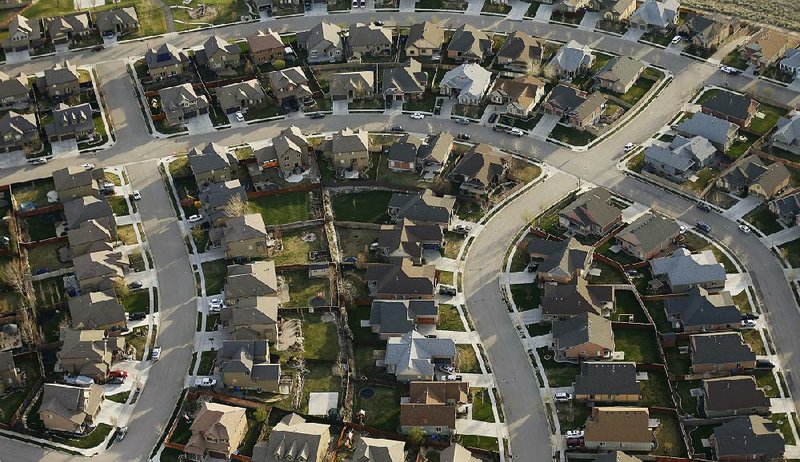Tensions in the Middle East caused mortgage rates to tumble, but the decline wasn't as steep as might have been expected.
According to the latest data released Thursday by Freddie Mac, the 30-year fixed-rate average fell to 3.64% with an average 0.7 point. (Points are fees paid to a lender equal to 1% of the loan amount and are in addition to the interest rate.) It was 3.72% a week ago and 4.45% a year ago. The 30-year fixed rate is at its lowest level in 13 weeks. It hasn't been above 4% since May.
The 15-year fixed-rate average dropped to 3.07% with an average 0.7 point. It was 3.16% a week ago and 3.89% a year ago. The five-year adjustable-rate average sank to 3.3% with an average 0.3 point. It was 3.46% a week ago and 3.83% a year ago.
"The Iranian attacks sent markets into turbulence, racing for safe haven, but it was very short-lived and bonds didn't make much of a move," said Elizabeth Rose, certified mortgage planning specialist at AmCap Home Loans in Plano, Texas.
The drone strike that killed Iranian Gen. Qassem Soleimani last week caused financial markets to stumble. Stocks fell and bond prices rose as investors feared an escalation of the conflict. The yield on the 10-year Treasury dipped to 1.8% on Jan. 3. But after President Donald Trump's address to the nation Wednesday, it rebounded to 1.87%.
The Freddie Mac survey was done before Trump's speech, which means the uptick in bond yields was not reflected in it. The federally chartered mortgage investor aggregates rates weekly from 125 lenders across the country to come up with national averages.
Although rates moved lower in the wake of the Iran crisis, they didn't drop as sharply as they might have.
"Mortgage rates remain relatively unchanged as banks and lenders keep rates up artificially to slow applications and keep from deteriorating their own portfolio of loans," said Mitch Ohlbaum, loan officer at Macoy Capital Partners in Los Angeles. "Do not expect much change until we start to receive fourth-quarter economics."
A Labor Department employment report today is likely to have a bigger effect on rates than recent geopolitical events have. Bankrate.com, which puts out a weekly mortgage rate trend index, found nearly half the experts it surveyed predict rates will go up in the coming week.
The government employment report is expected to show an increase of 155,000 jobs with the unemployment rate holding at 3.5%.
"Rates will increase, but only slightly," said David Kuiper, vice president of Northpointe Bank in Holland, Mich. "Improvements in the U.S.-China trade tension situation and encouraging employment numbers have mortgage-backed securities retreating slightly from the lofty levels they've been at."
Meanwhile, mortgage applications slowed during the holidays. According to the latest data from the Mortgage Bankers Association, the market composite index -- a measure of total loan application volume -- decreased 1.5% in the last two weeks of the year. The association released two weeks of data because its offices were closed during the holidays. The refinance index declined 8%, while the purchase index increased 5%.
The refinance share of mortgage activity accounted for 58.9% of applications.
"Mortgage applications were mixed in the final two weeks of 2019," said Bob Broeksmit, association president and chief executive officer. "On an annual basis, refinance and purchase applications maintained their strong trend of rising above 2018 levels. The purchase market is healthy for prospective home buyers in early 2020. Increased new home construction is easing inventory shortages in some areas, mortgage rates are low, and the economy continues to add jobs at a solid pace."
Information for this article was contributed by Josh Boak of The Associated Press.
Business on 01/10/2020
